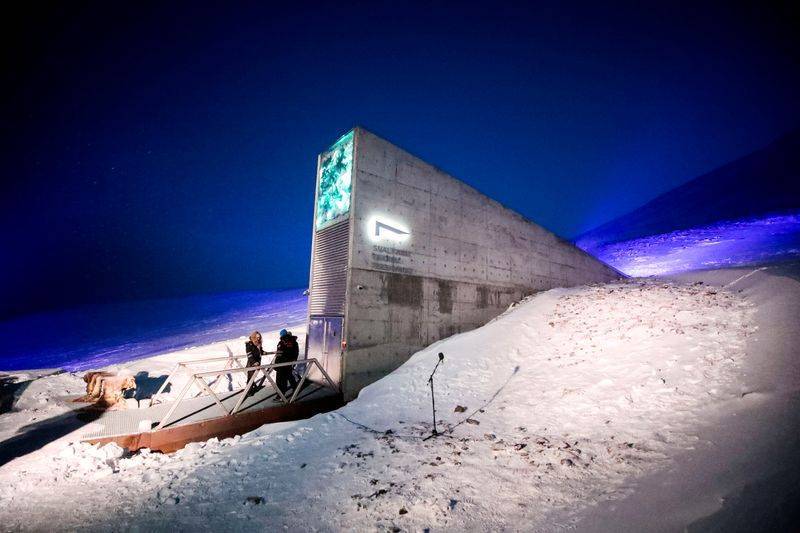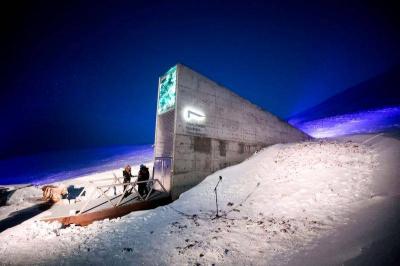A representative from a frozen vault in the Arctic, built to preserve global agricultural crops from extinction, stated that the remote facility received seeds on Tuesday from the largest number of new contributors to date. The Svalbard Global Seed Vault, located in permafrost caves on an island halfway between mainland Europe and the Arctic, was opened in 2008 as the ultimate backup for the global gene bank to protect plants from wars, diseases, and climate change. The vault receives samples from around the world and played a crucial role between 2015 and 2019 in rebuilding seed collections damaged during the war in Syria. On Tuesday, depositors carried seed boxes to the vault's entrance, which is a long, narrow building protruding from snow-covered hills.
Twenty-three seed banks participated, nine of which were first-time contributors, the largest number of new depositors presented in a single occasion, according to Crop Trust, a nonprofit organization that manages the facility with Norwegian authorities. The Crop Trust noted that among the first-time depositors were seed banks from Bosnia and Herzegovina, Cameroon, Indonesia, Kazakhstan, Kenya, Madagascar, Nigeria, and Zambia. They added that the boxes received on Tuesday contained crops such as beans, barley, peas, yellow corn, rice, and millet.
Stephan Schmitz, the executive director of Crop Trust, said, "Maintaining genetic diversity safeguarded in the Arctic ensures adaptability and resilience in our crops, securing food security for future generations." The organization indicated that many deposits made on Tuesday resulted from a 10-year global biodiversity project known as BOLD, aimed at enhancing global food and security.
Norwegian Minister of Agriculture and Food stated that with the recent deposits, 111 seed banks and 77 countries now have reserves of their plants in Svalbard. The temperature in the rooms, which are opened three times a year to limit exposure of seeds to the outside world, is approximately -18 degrees Celsius.




